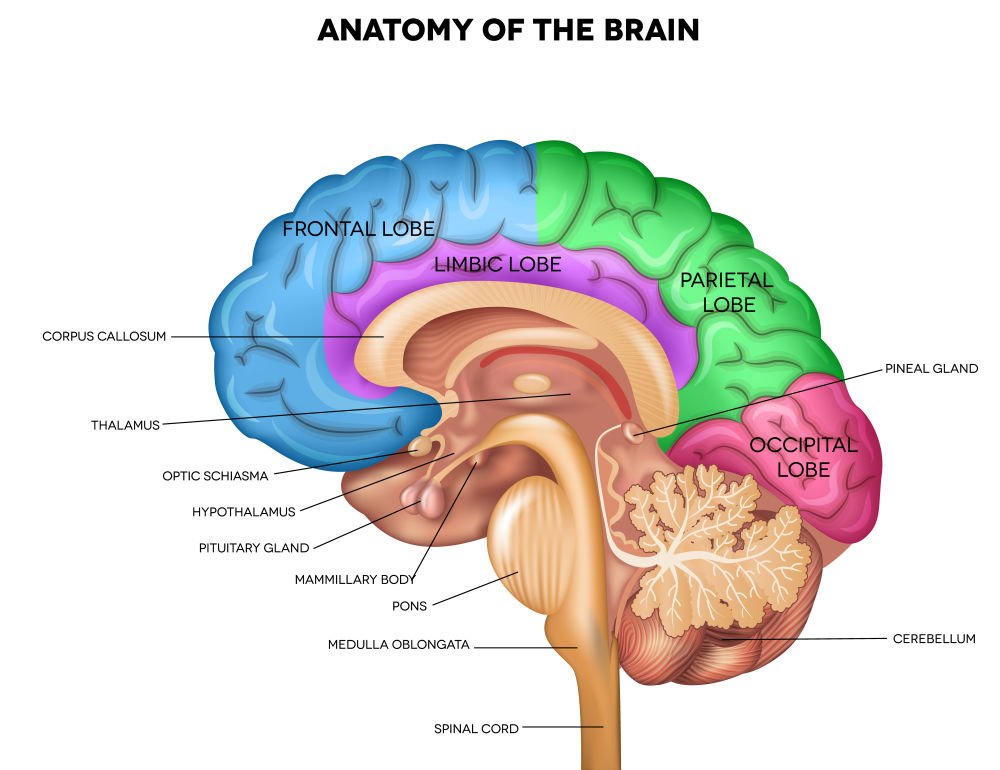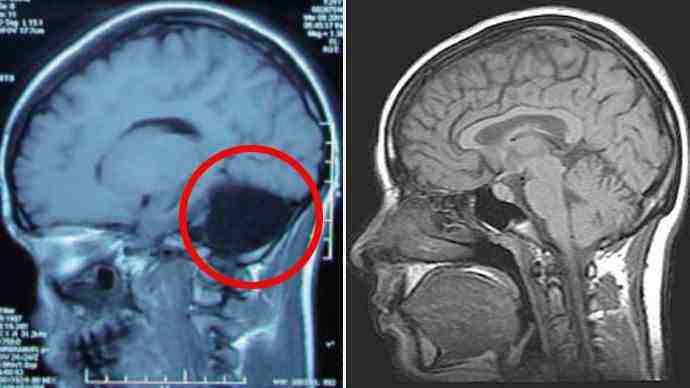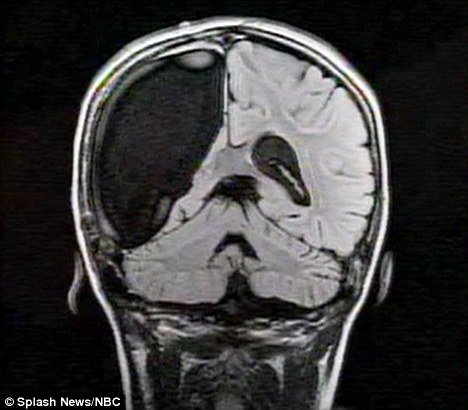What is the nature of reality? And what is the nature of consciousness? Both questions are valid by themselves, and are the driving factor for all sorts of truth-seekers, from scientists to religious people, from philosophers to everyday Steemians.

source: The Sentient Robot
Everything I write, everything I think is coming from a highly biased mind; my whole life I've been taking a scientific approach to all life's questions, as that is the way I and a lot of other "westerlings" have been raised to think. "Seeing is believing", "trust is good, verification is better", "if it can't be measured or quantified, it can't be proven to be true". These are the "truths" I've been raised with and they all boil down to a highly materialistic worldview.
Following the scientists of my era and, more importantly, my western culture, I have come to believe like these scientists: that consciousness and matter relate to each other in a very specific way. Consciousnesses, according to our materialistic worldview, is an "emergent" phenomenon, it arises from the highly complex interactions of particles and forces within the most complex body we have discovered in the entire known universe, our brain. It's just because these electro-chemical processes are so complex, and that a lot of it takes place in the field of quantum-mechanics, that we're not able to understand it yet.
The problem is that western science leaves it at that and happily continues to focus on the observable, tangible universe as that is the part of our four-dimensional plane of existence we can all agree is real. Reality, according to our greatest thinkers, is whatever is "out there" whether or not we humans are here, it's what's left when we throw away all individual viewpoints on, and opinions about it.

source: IFLScience: Man Missing Most Of His Brain Challenges Everything We Thought We Knew About Consciousness
What I'm starting to learn is that this way of thinking is a fallacy in itself, simply because "mind" or "consciousness" is the only thing we have to perceive and understand that reality with. More specifically, in my case, my mind is the only thing I have to perceive and understand that reality with. And I have a mind that's trained well in materialism and neglected on the spiritual front of the untouchable, the not quantifiable and unseen.
This realization made me question: is there a way to scientifically approach this problem? Western science is based on careful and repeated observations of the material world, so is there a way to do that with the mind, with consciousness, something that's so private and personal? For the longest time I've been convinced that there isn't. And in some way I still am: no one else but myself can observe my mind directly. Others might read my expressions and behavior and make from that a good guess about my state of mind: if I'm crying, I'm probably sad. Neurologists might do a scan of my brain and map out which neurons fire when I think this or that, and they're even able to induce an "outer body experience" by hooking up electrodes to the right parts of my brain. But that only counts as an indirect observation and only shows a partial correlation between the brain and the mind.
How do you know which comes first? Which one, mind or reality, gives rise to the other one? As I said, western science, which dominates all over the world, has been thinking in one way only: matter creates consciousness. So it seizes to exist when the body dies. It can't be shared in any way because we each have our own physical brain and for the same reason past live experiences are the stuff of fairy tales... Come to think about it, this is also a very deterministic view that even endangers things like freedom of choice.
You and I are our-self more like a wave than a permanent thing. He invites us, the reader, to think of an experience from your childhood, something you remember clearly, something you can see, feel, maybe even smell, as if you were really there. After all: you really were there, at the time, weren't you? How else would you remember it? But here is the bombshell: you weren't there! Not a single atom that is in your body today was there when that event took place! Matter flows from place to place and momentarily comes together to be "you". Whatever you are therefore, you are not the "stuff" of which you are made. If that doesn't make the hair stand up on the back of your neck, read it again until it does.
That's a quote from western scientist Richard Dawkins from his 2007 TED Talk "Why the universe seems so strange", which you can see in the video above.
As you may have noticed, in recent times I've been very curious about the other way of thinking: what if consciousness is the underlying fabric of reality? What happens when we would be able to rigorously and carefully observe our own minds from our own perspective? Try this: sit back, close your eyes, do nothing, say nothing and just try to be aware of what comes up in your mind. Do it now. I'll wait, I promise ;-)
This is the first, very small step to begin to understand your own mind. Whatever came up in your mind, did it come from you? And if so, did it come from your conscious self or from your subconscious self? Did you make the thoughts come up, or were they just suddenly there? Now this is as far as I've been able to take this, but there are luckily a whole lot of people who are very adept in observing their minds from within. But they are not western scientists. They are from the East, they are the indigenous people of Australia, Africa, south and north America; they are not the people we tend to listen to in Western science.
And that is a major oversight. Western science could learn so much from Asian people whose worldview is based on or at least touched by Buddhism. They are the most knowledgeable people I know of about the mind as seen from within. Those thoughts that popped up in your mind come from whatever comes before consciousness. We need this knowledge badly because how can you form a picture about reality when you don't know how the device you take the picture with works? Not even neurologists, biologists or psychologists observe carefully the only mind they have direct access to, from a first person viewpoint. They only describe what happens to the physical brain when certain states of mind occur. They believe that the observation that damaged brains produce alterations in the corresponding mind or personality is proof for their assumption that matter comes first.

source: learning-mind.com
Is it? Then how do we explain this woman that at age 24 was diagnosed as missing half her brain? She had no cerebellum and managed to live a normal life:
Let’s take a look at what the cerebellum is and what part it plays in our brain functions. The word is derived from Latin, it is a diminutive form of the word “cerebrum”, and it is literally translated as “little brain“. The cerebellum is located at the lower part of the brain, near the beginning of the spine, and, small though it may be, it contains about 50% of our neurons. It is very important for motor control, motor learning, balance, and fine movement. An insane amount of signal transmission and synaptic activity takes place at the cerebellum; it is, in its own way, a pair of the brain, yet completely separate from it, so to speak. It even looks different; the structure is more dense, giving it a massive signal-processing capability.
source: learning-mind.com
Or this girl that literally had half her brain removed?
Cameron has recently finished her physiotherapy and can now run and play, with a slight limp.
The school girl also lost some of her peripheral vision.
Doctors knew that removing the right side of the brain - which controls the left side of the body - meant she would be paralysed when she woke from surgery.
Cameron walked out of the hospital four weeks after her surgery.
source: dailymail.co.uk

source: Daily Mail
All I have seen, read and heard from "our" scientists has only ever led to more questions than answers about the nature of reality, and I'm beginning to reach the conclusion that they need to start to listen to their eastern colleagues, as they have a 5000 year (!!!) head start on us in the true science of the mind. If you want to understand something, the mind is your tool; so why not try to understand first if it's a screwdriver or a hammer before we build our worldview with it?

Recent articles you might be interested in:

Thanks for stopping by and reading. If you really liked this content, if you disagree (or if you do agree), please leave a comment. Of course, upvotes, follows, resteems are all greatly appreciated, but nothing brings me and you more growth than sharing our ideas. It's what Steemit is made for!


Just for Full Disclosure, I'm invested in these crypto-currencies:
Bitcoin | Litecoin | EOS | OmiseGo | FunFair | KIN | Pillar | DENT | Polymath | XDCE | 0x | Decred | Ethereum | Carmel | XYO
